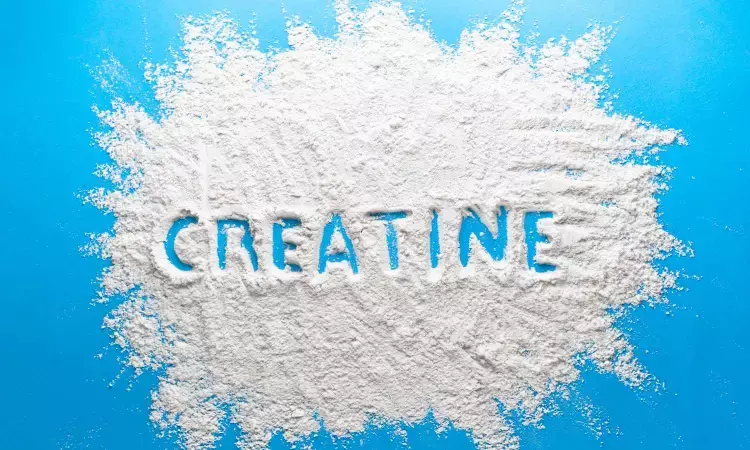- Home
- Medical news & Guidelines
- Anesthesiology
- Cardiology and CTVS
- Critical Care
- Dentistry
- Dermatology
- Diabetes and Endocrinology
- ENT
- Gastroenterology
- Medicine
- Nephrology
- Neurology
- Obstretics-Gynaecology
- Oncology
- Ophthalmology
- Orthopaedics
- Pediatrics-Neonatology
- Psychiatry
- Pulmonology
- Radiology
- Surgery
- Urology
- Laboratory Medicine
- Diet
- Nursing
- Paramedical
- Physiotherapy
- Health news
- Fact Check
- Bone Health Fact Check
- Brain Health Fact Check
- Cancer Related Fact Check
- Child Care Fact Check
- Dental and oral health fact check
- Diabetes and metabolic health fact check
- Diet and Nutrition Fact Check
- Eye and ENT Care Fact Check
- Fitness fact check
- Gut health fact check
- Heart health fact check
- Kidney health fact check
- Medical education fact check
- Men's health fact check
- Respiratory fact check
- Skin and hair care fact check
- Vaccine and Immunization fact check
- Women's health fact check
- AYUSH
- State News
- Andaman and Nicobar Islands
- Andhra Pradesh
- Arunachal Pradesh
- Assam
- Bihar
- Chandigarh
- Chattisgarh
- Dadra and Nagar Haveli
- Daman and Diu
- Delhi
- Goa
- Gujarat
- Haryana
- Himachal Pradesh
- Jammu & Kashmir
- Jharkhand
- Karnataka
- Kerala
- Ladakh
- Lakshadweep
- Madhya Pradesh
- Maharashtra
- Manipur
- Meghalaya
- Mizoram
- Nagaland
- Odisha
- Puducherry
- Punjab
- Rajasthan
- Sikkim
- Tamil Nadu
- Telangana
- Tripura
- Uttar Pradesh
- Uttrakhand
- West Bengal
- Medical Education
- Industry
Creatine is safe, effective and important for everyone, longtime researcher says

Creatine, the supplement popular with athletes for its ability to help build strength and power, is increasingly being recognized for its broad health benefits.
The compound’s usefulness extends well beyond the gym, according to Dr. Richard Kreider, professor and director of the Exercise & Sport Nutrition Lab at Texas A&M University. Kreider has spent more than 30 years investigating the effects of creatine, a naturally occurring compound stored in the muscle that combines with phosphate to form creatine phosphate, which is needed for cellular energy.
“When the body is stressed, like in exercise or under metabolic conditions like some diseases, creatine phosphate is needed to maintain energy in the cell, and therefore has a lot of protective and health benefits, in addition to the exercise performance effects that have been seen,” Kreider said.
How Much Creatine Do We Need?
Our bodies create about a gram per day, but it’s recommended to get two to four grams of creatine per day, depending on muscle mass and activity levels. According to Kreider, most people fall short of getting enough creatine from diet alone. The best sources of creatine in the diet are meat and fish.
“You only get about a gram of creatine per pound of red meat or fish, like salmon, so it’s expensive and takes a lot of calories to get a gram,” Kreider said. This is why supplementation matters, especially for vegetarians or vegans who do not consume enough creatine in their diet.
For athletes with performance-related goals, Kreider said it’s recommended to supplement 5 grams, four times a day for a week. Supplementation “helps load the muscle up with more energy,” which makes for improved high-intensity exercise, recovery and even cognitive function. After that, consuming 5 to 10 grams per day will maintain creatine stores and provide enough creatine for the brain.
Beyond boosting athletic performance, creatine is important for everyone as they age throughout their lives, Kreider said. It can help older adults who lose muscle mass and cognitive function as they age, he said, and in adolescents, low dietary creatine intake is associated with slower growth, less muscle mass and higher body fat.
Is Creatine Safe?
In a comprehensive review published in February in the Journal of the International Society of Sports Nutrition, Kreider and colleagues analyzed 685 clinical trials on creatine supplementation to assess its safety and the frequency of reported side effects. The analysis showed there were no significant differences in the rate of side effects for participants taking a placebo and those taking creatine.
As for anecdotal concerns like bloating or cramping, Kreider says those claims don’t hold up under scrutiny, and studies have shown creatine can actually prevent cramping because it helps the body retain more fluid.
Despite the strong evidence base, Kreider said creatine has long been the subject of misconceptions and misinformation. He’s among the members of the International Society of Sports Nutrition who recently issued a letter affirming the safety and efficacy of creatine, urging lobbyists and policymakers not to restrict access to it.
“There’s absolutely no data supporting any negative side effect anecdotally reported about creatine on the internet and in the media,” he said. “Creatine is safe, and it’s important for everybody, not just bodybuilders and athletes.”
Reference:
Kreider, R. B., Gonzalez, D. E., Hines, K., Gil, A., & Bonilla, D. A. (2025). Safety of creatine supplementation: analysis of the prevalence of reported side effects in clinical trials and adverse event reports. Journal of the International Society of Sports Nutrition, 22(sup1). https://doi.org/10.1080/15502783.2025.2488937
Dr Kamal Kant Kohli-MBBS, DTCD- a chest specialist with more than 30 years of practice and a flair for writing clinical articles, Dr Kamal Kant Kohli joined Medical Dialogues as a Chief Editor of Medical News. Besides writing articles, as an editor, he proofreads and verifies all the medical content published on Medical Dialogues including those coming from journals, studies,medical conferences,guidelines etc. Email: drkohli@medicaldialogues.in. Contact no. 011-43720751


